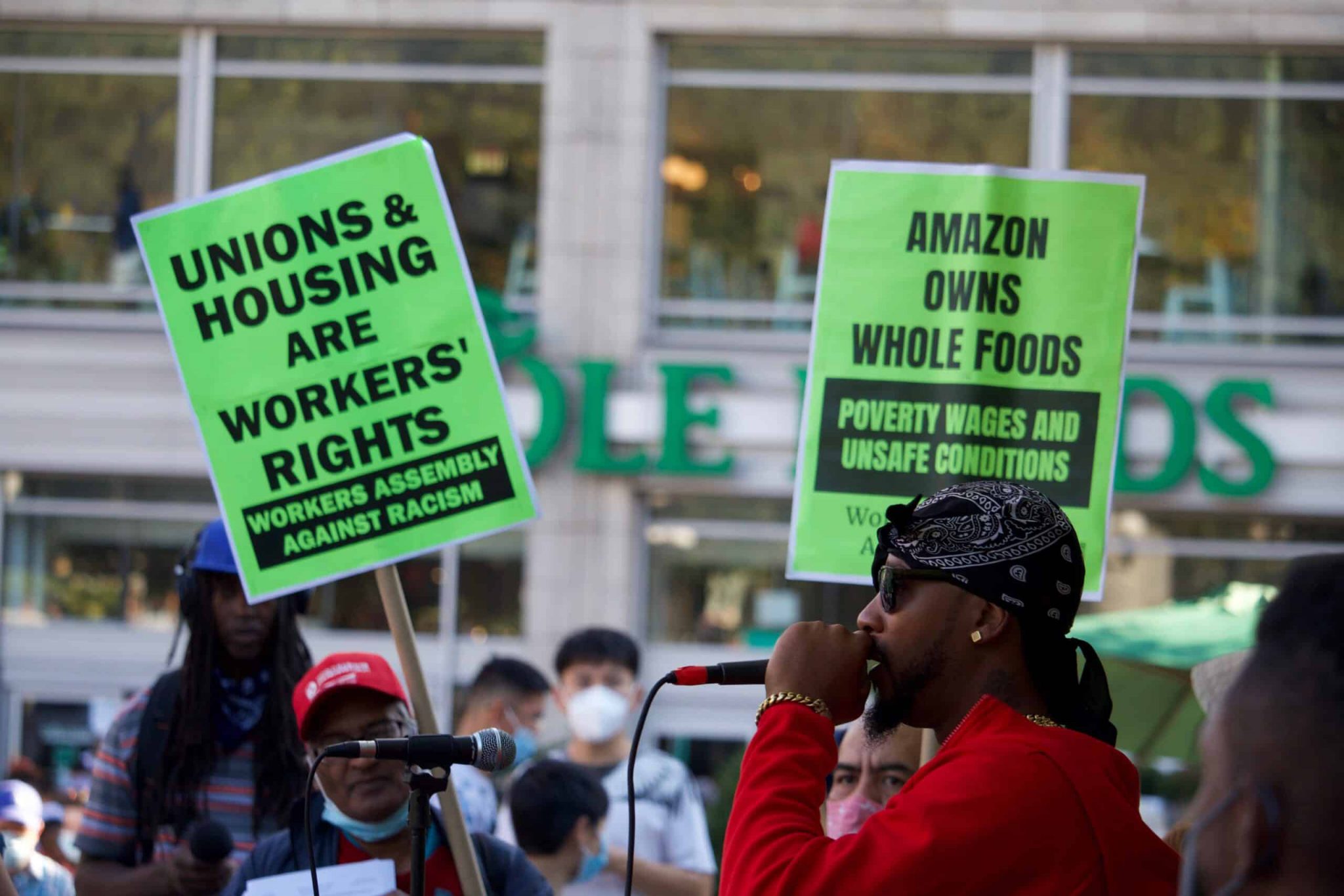
Fred Wang is a student at Harvard Law School.
Happy Labor Day! For more on the origins of this federal holiday celebrating workers, see Kevin’s weekend post, which provides a helpful backgrounder.
There’s much reason for optimism this Labor Day. Union momentum and public support for unions are surging — a historic trend largely driven by young workers across the country. In short, Rani Molla recaps on Vox’s Recode, “unions are winning again.”
But we’d “have more to look forward to,” Steven Greenhouse writes in the Washington Post, if corporations and courts didn’t make it so hard to unionize in the first place. As the past few months of union busting have made clear, employers often take serious measures to interfere with and suppress union-organizing efforts. This “routine silencing of workers who seek to form a union or enforce their workplace rights,” Terri Gerstein argues in the American Prospect, poses “the most prevalent form of cancellation in our society” — despite what the loudest “cancel culture” opponents will tell you.
President Biden promised to oversee the “most pro-union” administration in U.S. history. And he’s taken steps towards making good on that promise. But as the November midterm elections near, Biden’s track record might not be enough to win over blue-collar voters, Katia Dmitrieva and Jordan Fabian report over at Bloomberg. Many workers are dismayed at the administration’s “failure to deliver on campaign promises such as a federal minimum wage hike.” Labor reform initiatives such as the PRO Act have stalled in Congress. “The lack of enthusiasm,” the authors note, “holds gloomy implications” for the Democratic Party come November — and demonstrate just “how hard it will be for Democrats to rebuild their deep historic ties with union voters.”
Finally, Ben has an article published in The Supreme Court Review covering Cedar Point Nursery, a 2021 Supreme Court decision holding that the government must pay employers before requiring them to admit union organizers onto company property.
In the piece, Ben argues that the decision was wrong on its own terms. To justify its holding, Cedar Point maintained that union-access regulations — unlike, say, “standard health and safety inspections” — were “not germane” to “any risk posed to the public.”
This argument, Ben shows, ignores what labor law actually does. The challenged union-access provision for farmworkers, for instance, was a “direct response to widespread violence that [had] engulfed California farms.” And by “facilitating unionization,” union-access rights also “facilitated collective bargaining agreements that contained a robust system of safety and health measures,” such as “pesticide protection measures.” In other words, the regulation too served public health and safety ends.
An excerpt of the introduction is up on the blog, and OnLabor readers can access the full article for free (for thirty days) here.






Daily News & Commentary
Start your day with our roundup of the latest labor developments. See all
July 11
Regional director orders election without Board quorum; 9th Circuit pauses injunction on Executive Order; Driverless car legislation in Massachusetts
July 10
Wisconsin Supreme Court holds UW Health nurses are not covered by Wisconsin’s Labor Peace Act; a district judge denies the request to stay an injunction pending appeal; the NFLPA appeals an arbitration decision.
July 9
In Today’s News and Commentary, the Supreme Court green-lights mass firings of federal workers, the Agricultural Secretary suggests Medicaid recipients can replace deported farm workers, and DHS ends Temporary Protected Status for Hondurans and Nicaraguans. In an 8-1 emergency docket decision released yesterday afternoon, the Supreme Court lifted an injunction by U.S. District Judge Susan […]
July 8
In today’s news and commentary, Apple wins at the Fifth Circuit against the NLRB, Florida enacts a noncompete-friendly law, and complications with the No Tax on Tips in the Big Beautiful Bill. Apple won an appeal overturning a National Labor Relations Board (NLRB) decision that the company violated labor law by coercively questioning an employee […]
July 7
LA economy deals with fallout from ICE raids; a new appeal challenges the NCAA antitrust settlement; and the EPA places dissenting employees on leave.
July 6
Municipal workers in Philadelphia continue to strike; Zohran Mamdani collects union endorsements; UFCW grocery workers in California and Colorado reach tentative agreements.